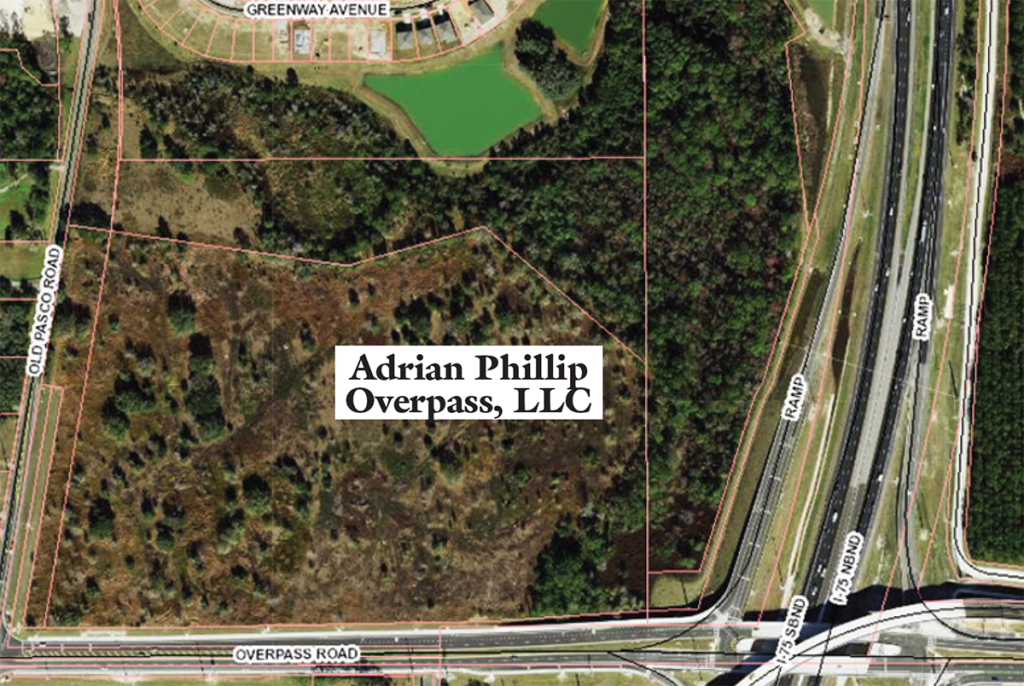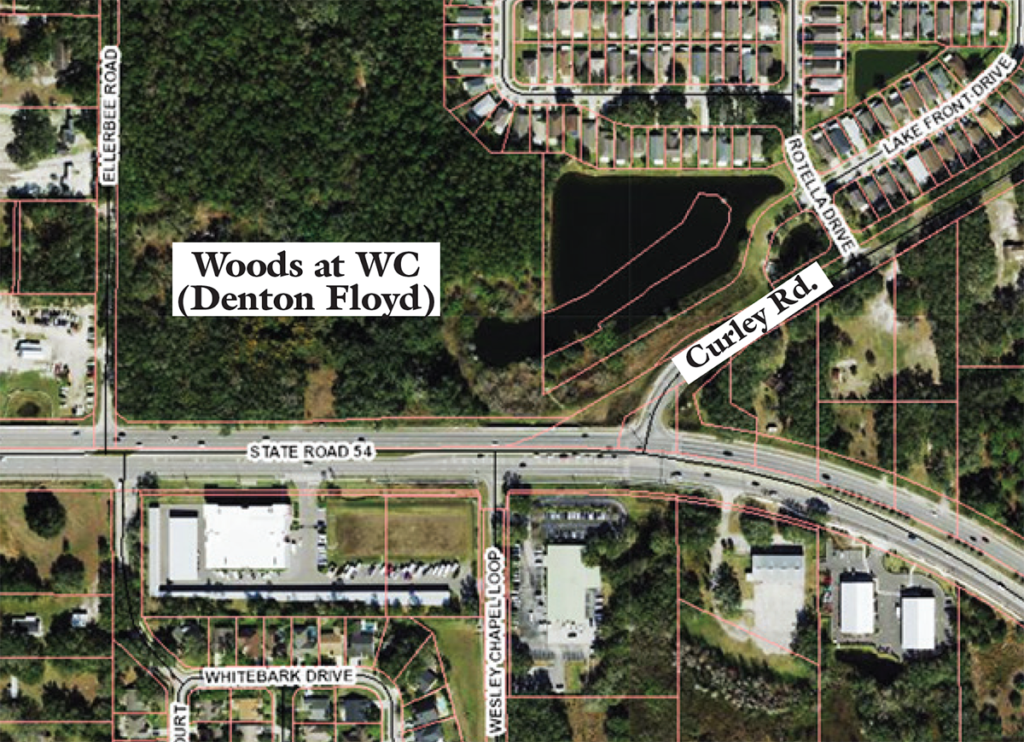What the vote means for two Wesley Chapel properties & what Pasco County’s affordable housing plans are moving forward

When the Pasco County Board of Commissioners (BOC) voted unanimously on May 21 to opt out of a portion of the state’s recently revised “Live Local” law that was originally passed last year, it didn’t stop the BOC from continuing to look to find other ways to bring affordable or “workforce” housing to the county.
“We all agreed that although those in the workforce need more affordable housing,” says District 2 Commissioner Seth Weightman, “Live Local just did not seem to accomplish that goal.”
To that end, Pasco’s senior assistant county attorney David Goldstein made a presentation to the commissioners at their May 21 BOC meeting which summarized the reasons why the county was choosing to opt out of the provision of the Live Local law (pushed by Senate President Kathleen Passidomo during the 2023 State Legislative session) that was modified towards the end of the 2024 session to allow local jurisdictions the opportunity to “opt out.”
Pasco, led by Comm. Weightman, was at the forefront of the fight to get the law changed during this year’s session, as one of the two properties that applied for the Live Local tax break — the Tapestry at Cypress Creek apartments (where Jannah and I have lived the past five years, since the complex first opened), where Wesley Chapel Blvd., S.R. 54 and S.R. 56 meet — is located in his district. I can personally vouch for what Comm. Weightman said at the May 21 meeting:
“That complex has been around for a number of years and was never intended to be an affordable housing project. It’s Class A multifamily living with amenities, right next to Wesley Chapel and the Outlet Mall.”
Goldstein outlined the conditions that will allow the county to opt out of the 80%-120% of Average Monthly Income (AMI) provision of Live Local for 2025, although both Tapestry and a complex in the Trinity area both already have applied — but neither one had yet been granted that exemption by county property appraiser Mike Wells at our press time — for 2024.
The 80%-120% provision allows rental communities to receive the Live Local tax exemption if their units rent for 80-120% of the AMI for an individual in Pasco County, which Goldstein said worked out to rents averaging about $2,000 per month. “These $2,000-per-month rents are not what our school teachers, county employees, firefighters and law enforcement officers can afford,” Goldstein told the commissioners. “It doesn’t make sense to give large tax exemptions essentially to complexes that are charging market rate rents with no charitable purpose.”
He added that Pasco also has a large surplus of apartments in that 80-120% range.
“Our deficit is only in rental units charging less than 80% of AMI, which is truly affordable or workforce housing,” he said. “But, we don’t have any communities offering rents under that 80% AMI range coming before you for approval.”
Goldstein also noted that even with the changes to the Live Local law, Pasco is still grouped with Hillsborough, Pinellas and Hernando counties in the Tampa Bay Metropolitan Statistical Area (MSA), which is what is being used to determine if a community already has a surplus or a deficit in the number of rental units in the 80-120% AMI range, “So although our MSA has a surplus of 3,994 units at present, even if Pasco has a surplus in the future, but Hillsborough or Pinellas has a large enough deficit to more than offset our surplus, we might not be allowed to opt-out of Live Local in the future. I’m hoping the law will be refined again in the next legislative session.”
He also said he hoped that other counties in MSAs with surpluses of the 80-120% AMI units will follow Pasco’s lead and opt out of the law.

Goldstein also told the commissioners that counties that still qualify under the provisions of the law will have to opt out every year, and that the apartment complexes trying to receive the tax breaks also will have to apply for those breaks every year.
“Fortunately, we only have the two complexes who may be able to receive the tax break this year,” he said, “but even just for this year, the county would lose 75% of the $1.7 million the two complexes paid in taxes last year (or more than $1.275 million combined)” if Wells does allow them to receive the Live Local tax break for 2024. “But, we can only opt out of Live Local for county taxes,” he added. “I have drafted a letter to the Pasco School Board, Mosquito Control District and the cities in the county instructing them to also opt out of the 80-120% AMI provision of Live Local for 2025.”
Goldstein also mentioned that there are flaws in the way the data that would allow Pasco and other jurisdictions to opt out of Live Local is being used.
“We can only opt out if the latest University of Florida Shimberg (Center for Housing Studies) Report, which uses American Community Survey data (based on the Census) shows that our Tampa Bay MSA has a surplus of rental units in the 80-120% AMI range,” he said. “But, that does not include recent construction — it’s always two years behind. If we have a recent apartment complex — and we have a lot of recent apartment complexes being built — it’s not counting those in the surplus inventory. We did raise that as a concern and we’re hoping it’s something else that can be refined during the next Legislative Session. The problem is that the Shimberg Report could show we have a deficit when we actually have a surplus on the ground.”
He also noted that of all of the large counties in the state, only Broward and Miami-Dade counties have large deficits of units in the 80- 120% AMI range, “So it seems like this state law was enacted only to help southeast Florida. The law really should only be applied to those areas.”
Goldstein also noted that the change in the law for 2025 only applies to tax breaks for existing communities, “So we’re hoping to get the land use part of the law changed during next year’s session. If we don’t have a deficit of those units, why should we have to give up job-creating commercial and industrial properties in the future to have more of them?”
Pasco’s five commissioners — including new Dist. 4 Comm. Lisa Yeager in her first BOC meeting since being appointed to fill the seat of the late Comm. Gary Bradford by Gov. Ron DeSantis — voted unanimously to approve opting out of the tax portion of Live Local.
Even so, at the insistence of Dist. 5 Comm. Jack Mariano — despite the fact Goldstein said it wasn’t necessary to do so — the BOC also voted 5-0 to draft a letter to the property appraiser asking him to not grant the exemption to the two rental communities that applied for it for 2024. “I’ve been in constant contact with Mr. Wells’ attorney’s office,” Goldstein said. “They’re well aware of how we feel about this.”
Talking Affordable Housing
Following their regular BOC meeting, the commissioners held a workshop on what Pasco can do to provide more affordable housing options for those in the workforce — county employees and others — especially after Goldstein noted during the regular BOC meeting that Pasco does indeed have a shortage of affordable units for those whose monthly incomes are below the 80% of the county’s AMI.
The workshop was led by Cathy Pearson, Pasco’s assistant county administrator for public services, who said she was discussing affordable housing with David Lambert, the chairman of the Pasco Housing Authority and the Executive VP and general manager of the Withlacoochee River Electric Cooperative, “And we both said we have never had an affordable housing plan for Pasco County. David took me to his Pasco Housing Authority Board and convinced the Board to pay for this study for us,” Pearson said. “How wonderful.”
She also said that for the year-long study, “affordable housing was defined as housing that costs less than 30% of a household’s income.” For someone earning Pasco’s average median income of $63,187 per year, an affordable rent would be $1,579 per month, although starting teachers and many other workers only earn about 80% of that median income, so those workers could only afford rents of $1,263 per month or less.
Among the options put forth by the study to help increase affordable housing options in Pasco include legalizing “accessory dwelling units,” sometimes called backyard homes or “granny flats,” adding duplexes or even quadraplex units in existing single-family communities, the possibility of requiring developers to include or pay for affordable housing in their unit totals to receive approval for those developments, as well as expanding some kinds of public rental or home-buying assistance. Goldstein also noted that the county already has reduced mobility and impact fees for developments that include affordable housing.
Pasco Planning & Economic Growth director David Engel says the county is expected to add more than 101,000 workers to fill the jobs in the projects that are already under design or that the Board has already approved.
“So we’re going to have a tremendous need for housing in the future for that workforce.”




